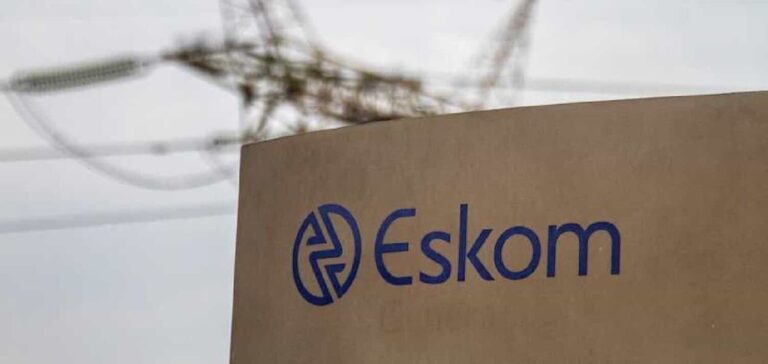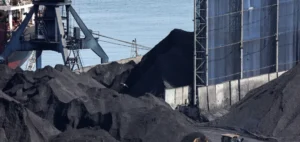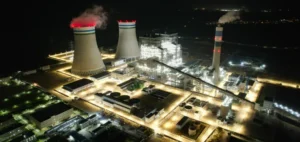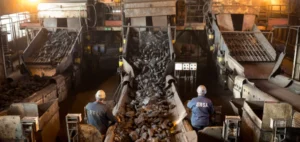South Africa’s state-owned utility Eskom announced on 23 March the grid connection of Unit 6 at the Kusile thermal power station. The operation adds 800 megawatts (MW) of generating capacity, reinforcing the country’s efforts to stabilise its electricity system.
A central project in the energy recovery plan
This commissioning marks a pivotal phase in completing the Kusile project, which will total 4,800 MW once all units are operational. The milestone aligns with Eskom’s recovery plan, which targets the addition of 2,500 MW in new capacity by the end of March.
Simultaneously, Unit 4 of the Medupi power station, currently undergoing extended maintenance, is expected to return to service by the end of April, contributing an equivalent 800 MW. Together, these are South Africa’s newest coal-based infrastructures, aimed at reinforcing short-term electricity availability.
A dual-track approach to coal
The coal-fuelled Kusile plant is equipped with Wet Flue Gas Desulphurisation (WFGD), a first-of-its-kind technology in Africa, designed to reduce sulphur emissions. However, the reliance on coal remains intact, as it still accounts for more than 80% of national power generation.
Despite energy transition commitments, Eskom’s roadmap retains a significant share of coal in the energy mix, reflecting a balance between immediate grid reliability and medium-term diversification goals.
A measured decline in load shedding
From April 2024 to 21 March 2025, Eskom reported 342 consecutive days without load shedding, compared to just 32 days over the same period the previous year. This outcome follows a 6.6% reduction in unplanned outages and sufficient available capacity to meet peak demand.
At the same time, around 6,800 MW remains offline due to scheduled maintenance. Eskom has also reduced its diesel consumption, achieving cost savings estimated at ZAR16.89bn ($926mn) since April 2024.
Eskom Chief Executive Dan Marokane stated: “The addition of Kusile Unit 6 is proof that we continue to make progress in stabilising and strengthening South Africa’s electricity supply.”






















